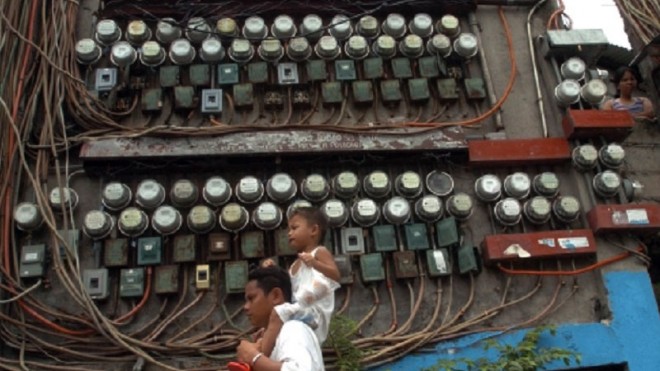National Grid Corp. of the Philippines (NGCP) on Tuesday warned of further increases in electricity rates along with higher cost of ancillary services as the grid operator readies to fully comply with a Department of Energy (DOE) policy that requires the company to engage only in “firm” contracts.
On Monday, the Manila Electric Co. (Meralco) announced an overall rate increase of 9.65 centavos per kilowatt-hour (kWh) for the August bill, saying this was mainly due to a higher transmission charge.
Meralco said the transmission charge for residential customers increased by 13.31 centavos per kWh from P0.5992 in July to P0.7323 per kWh this month due to higher ancillary service (AS) charges, which accounted for about 36 percent of NGCP’s total transmission charge,
“The increase in charges are indeed driven by an increase in pass-on ancillary charges, particularly the cost of diesel providers,” Cynthia Perez-Alabanza, spokesperson for the NGCP, told the Inquirer.
Alabanza was referring to suppliers, with whom the NGCP has engaged in contracts for AS that are fulfilled with electricity supply generated by diesel-fed generators.
AS refers to reserve capacity that is needed to maintain grid stability and to protect against system failure when power plants go offline.
The DOE requires NGCP to source all of its ancillary services needs through “firm” contracts. But the NGCP says it maintains a “healthy mix” of firm and nonfirm contracts, which are more practical than all-firm contracts.
With firm contracts, power suppliers are committed to deliver on demand of the buyer such as the NGCP. With nonfirm contracts, the supplier may decide to use the supplier elsewhere, such as selling at the spot market.
The DOE argues that NGCP’s noncompliance with the policy resulted in the occurrence of rotational brownouts in the Luzon grid last June.
“While we continue to work with other energy players to mitigate the further expected increase in AS cost with the implementation of the DOE mandated firm contracting, the public may expect further increases once the directive is implemented in full,” Alabanza said.
Last June, Anthony Almeda, president of the NGCP, warned the Senate energy committee that “there will be an astronomical spike in electricity prices for consumers” if the NGCP were forced to follow the DOE policy, since firm contracts are paid whether or not the electricity supply is used.
According to the NGCP simulations, power rates can see an upsurge of 64 centavos per kWh for Luzon, 54 centavos per kWh for Visayas, and P1.39 pesos per kwh for Mindanao. INQ


